Afghan refugees find their feet in Bern
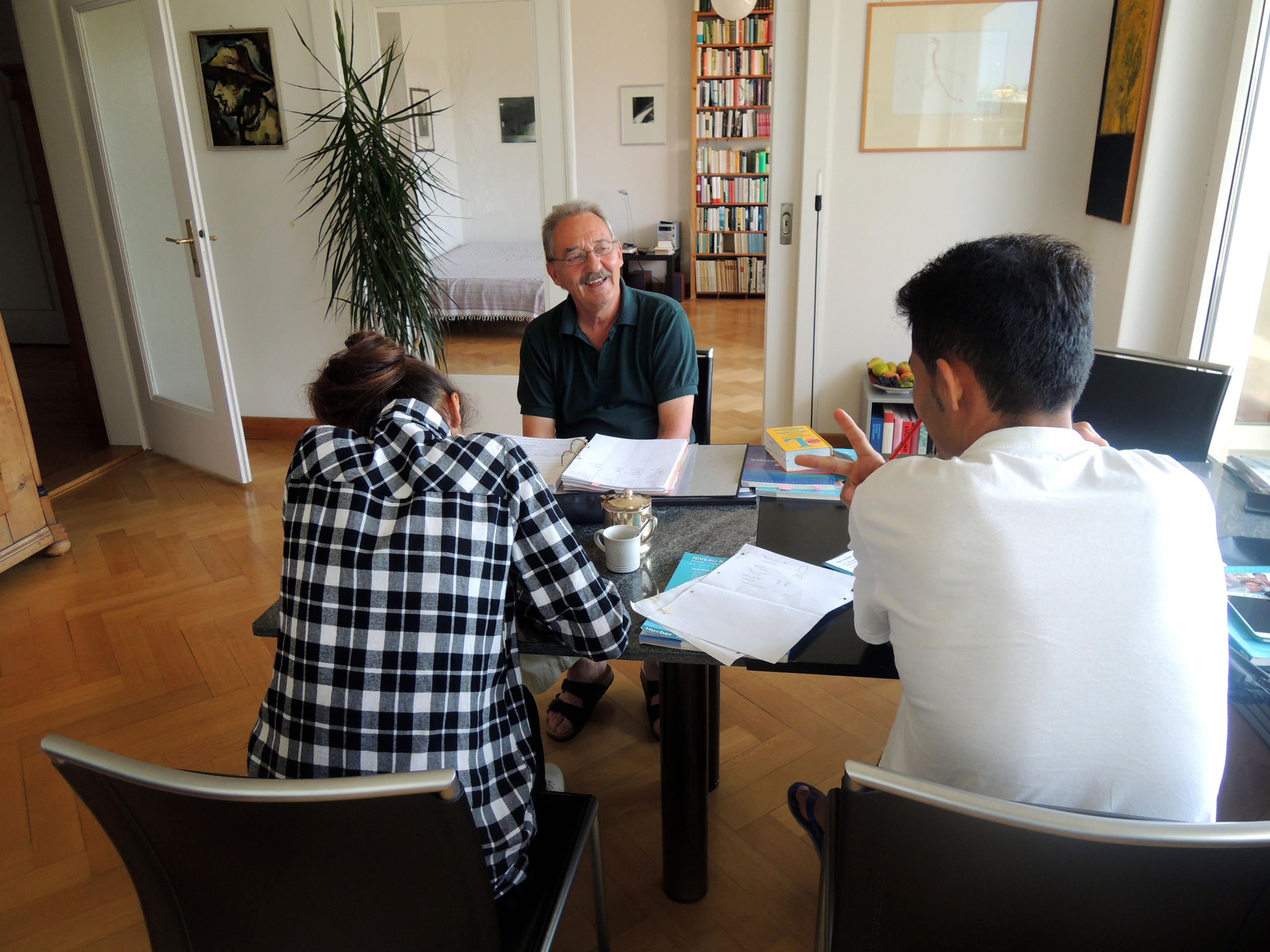
Applying for asylum in Switzerland is a long process. And those who come seeking refuge still have to get on with their lives, despite not knowing if they’ll be able to stay. We found out how one family is putting down roots.
More than a year ago, an Afghan family of seven arrived in Switzerland and applied for asylum. The Sajadis* felt like strangers, didn’t understand a word and lived for months in a cramped space. Since then, much has changed for the better, even if starting life in a new world is anything but easy.
“Life is too short to learn German,” groans Maryam*. The 21-year-old is sitting with her brother Mahdi*, 19, in Fritz’s* apartment in the Swiss capital, Bern. Today they are learning about main and subordinate clauses, about “weil” (because) and “obwohl” (although). The retired high-school teacher is precise; he corrects them both until the sentence they formulate is accurate and idiomatic. Their enthusiasm to learn is a source of great pleasure for their teacher. They know how important it is to learn German in order to integrate and, above all, to carry out their ambitious career plans.
Fritz has been teaching the two young Afghans German for a year. “They are very engaged and have quickly learned how to express themselves. Both have wit and humour, and they argue every now and then about who is the more intelligent. Their expectations are very high.” “I am Einstein’s granddaughter,” Maryam interrupts, and punches her brother affectionately in the side.
The pair come two or three times a week to Fritz to learn this “difficult” language. They talk about this and that, and ask him for advice, as their teacher has long since become someone they trust. “At the beginning I had to make it clear to them that they had to be punctual, but now everything works perfectly. All in all, the time I spend with them is very enriching for me,” says the committed teacher.
A journey of 6,800 kilometres
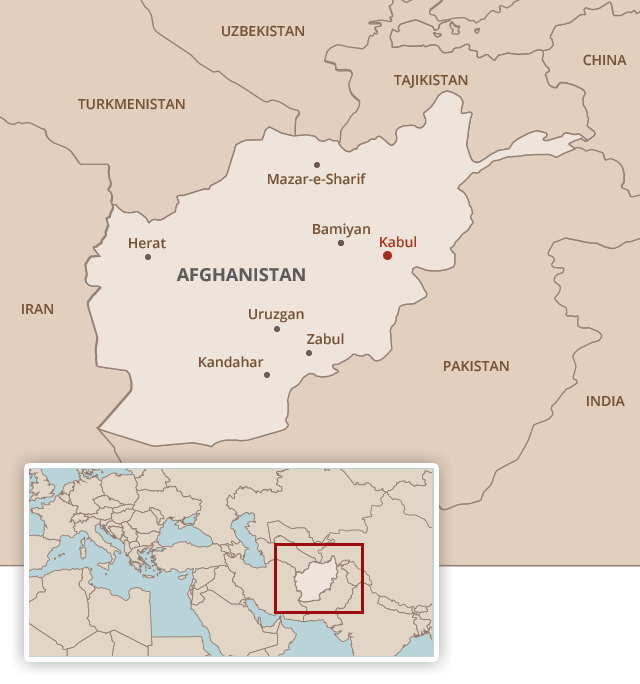
The Sajadi family comes from Shahristan in central Afghanistan. They belong to the Hazara people, who make up about 10% of the population and speak Dari, a Persian language. In contrast to the Sunni majority in Afghanistan, they are Shiite. The Hazara are considered inferior and suffer discrimination and persecution. A large diaspora lives in Iran and Pakistan.
The Sajadis left their home in early 2011 and travelled via Iran to Turkey, where they spent four years in the city of Adana. Then they took the Balkan route to Switzerland, where they arrived in October 2015 and applied for asylum.
For the first months, the family shared one room in Salvation Army accommodation in a rural community near Bern. During the daytime, they stacked their mattresses on top of each other in order to have room to eat. After four months, the two oldest children moved in with Marianna*, who lives in the same village.
A retired trained carer, she has supported the family wherever she can ever since, bringing structure into their lives, doing homework with the children, going to parents’ evenings and helping the children to make career decisions and to find work experience. “I am lucky to have found this family. Spending time with them has opened my mind and is a great bonus for me – this is a so-called win-win situation. I wish all refugees had a godmother or godfather.”
German is a difficult language
The language is the biggest challenge for everyone. “At the beginning I didn’t understand anything and that was tough,” says 15-year-old Said*. “Now it’s more-or-less OK.” The tall, lanky ninth-grader wants to suspend his 10th grade next summer to do an apprenticeship as a car mechanic in order to become an aeroplane mechanic later. He plays football, enjoys being outdoors, listens to Turkish pop and rap, plays guitar and likes singing. “He’s an easy-going sort,” says Marianna.
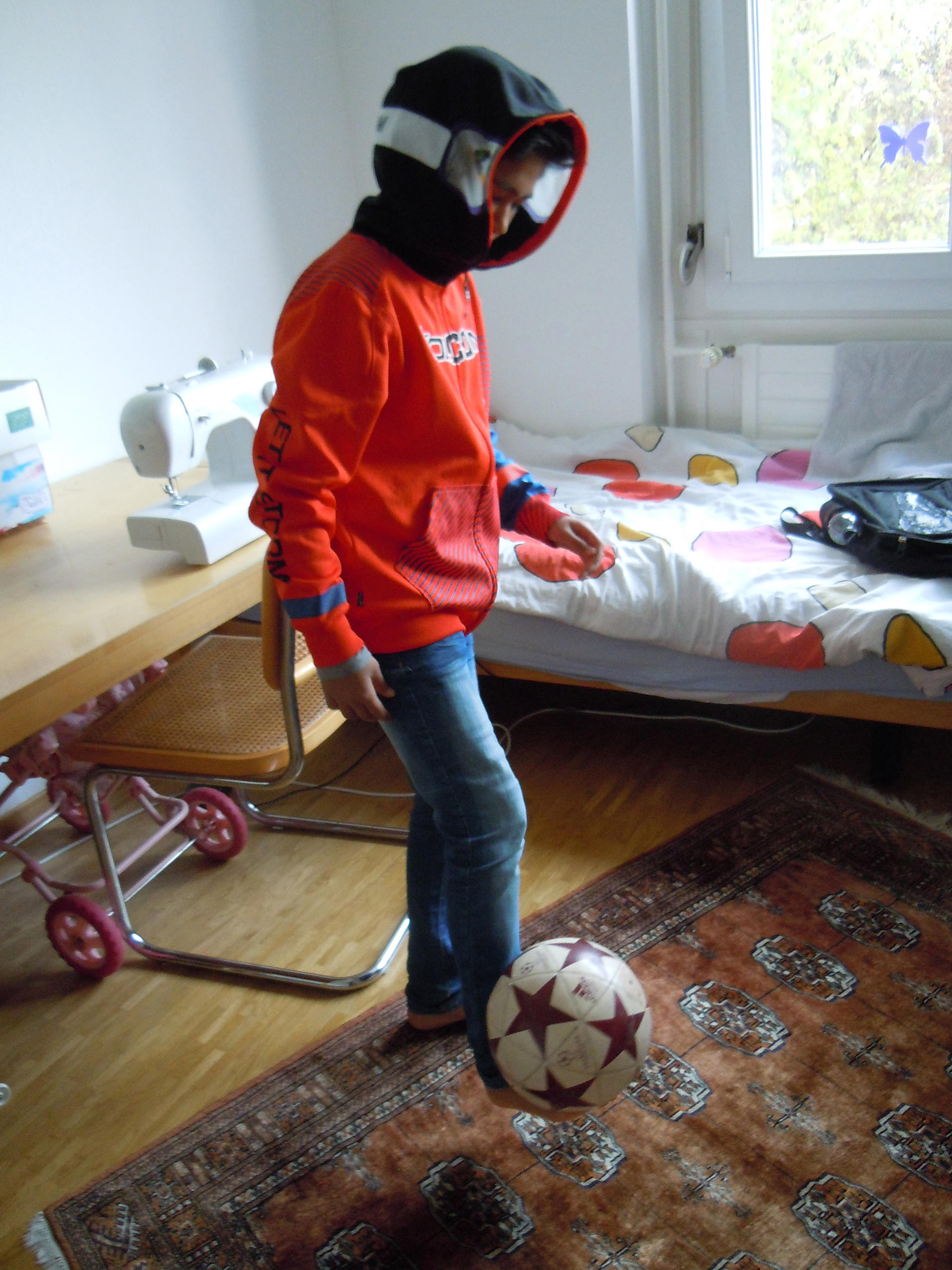
His younger brother Mohsen* (12) is very keen to get into secondary school and in addition to German, he is learning French and English. Even at the weekends, he pores over his books. His grades are good. This conscientious boy is also a striker at his local junior football club and has “eyes in the back of his head”, according to his father. Mohsen admires Ronaldo and Beckham and wants to be a professional footballer. Failing that, he would like to study medicine.
Mahdi, the oldest brother, struggled in the first few months with the fact that people thought he was “stupid” when he didn’t understand what they were saying. He has since learned to express himself well in German, even if the Swiss culture and mentality are foreign to him. “I can’t imagine having Swiss friends – we are too different. People of my age also seem much younger here.” He is seeking an internship in a hospital in order to get a nursing apprenticeship afterwards. He would like to become a doctor later. But Mahdi’s great passion is Thai boxing. “I will be at the summer Olympics in 2020 in Tokyo representing Afghanistan,” he says – and he is serious.
Maintain culture
His big sister is also aiming high. As well as all the German lessons, she is attending various lectures at the University of Bern. She would like to study later. Maryam doesn’t yet know what direction to take, but she knows that the route ahead is a long one. She is also teaching Afghan children – among them her little brothers and sisters – to write in Dari. “They should maintain contact with our culture. Perhaps one day we will go back, who knows.”
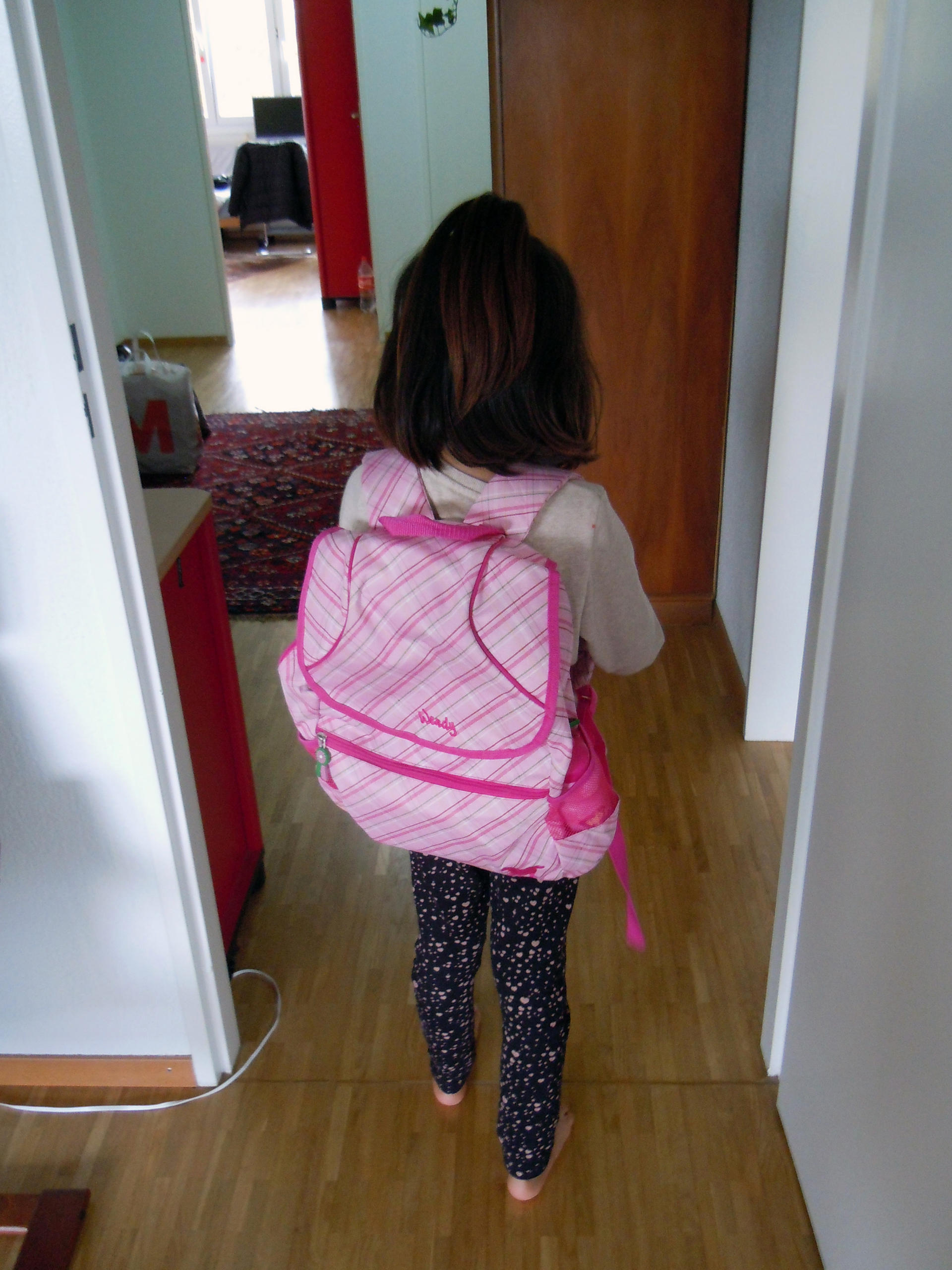
Six-year-old Asma*, in the first grade at school, has learned German while playing. Snatches of Bernese German escape her lips with scarcely an accent. The parents are finding it much harder. Zahra* (39), the mother, is illiterate and first has to learn a foreign alphabet, which she is not finding easy.
Hossain* (41), the father, knows almost all the local vegetable varieties in German, thanks to his allotment. He is proud of his thriving lettuce, turnips, onions and courgettes, and has even cultivated Afghan leeks. He and his wife love plants. That is evident from the greenery in the Sajadis’ bright four-bedroom apartment, which they found with the help of their “godmother”.
A trained tailor who helps out with forestry work in the village, Hossein’s main desire is to be financially independent one day. “I want to have my own shop – the best sewing studio in Bern,” he beams. But that isn’t possible at the moment. With his identity pass “N” as an asylum seeker, he is not allowed to take on any self-employed work. He occasionally sews on buttons for neighbours and patches the clothes of his large family. He also helps out at a sewing class for asylum seekers.
The father of the family is extremely grateful for all the support his family has received. “I thank Marianna, Fritz and many others. You absolutely must write that!” he says.
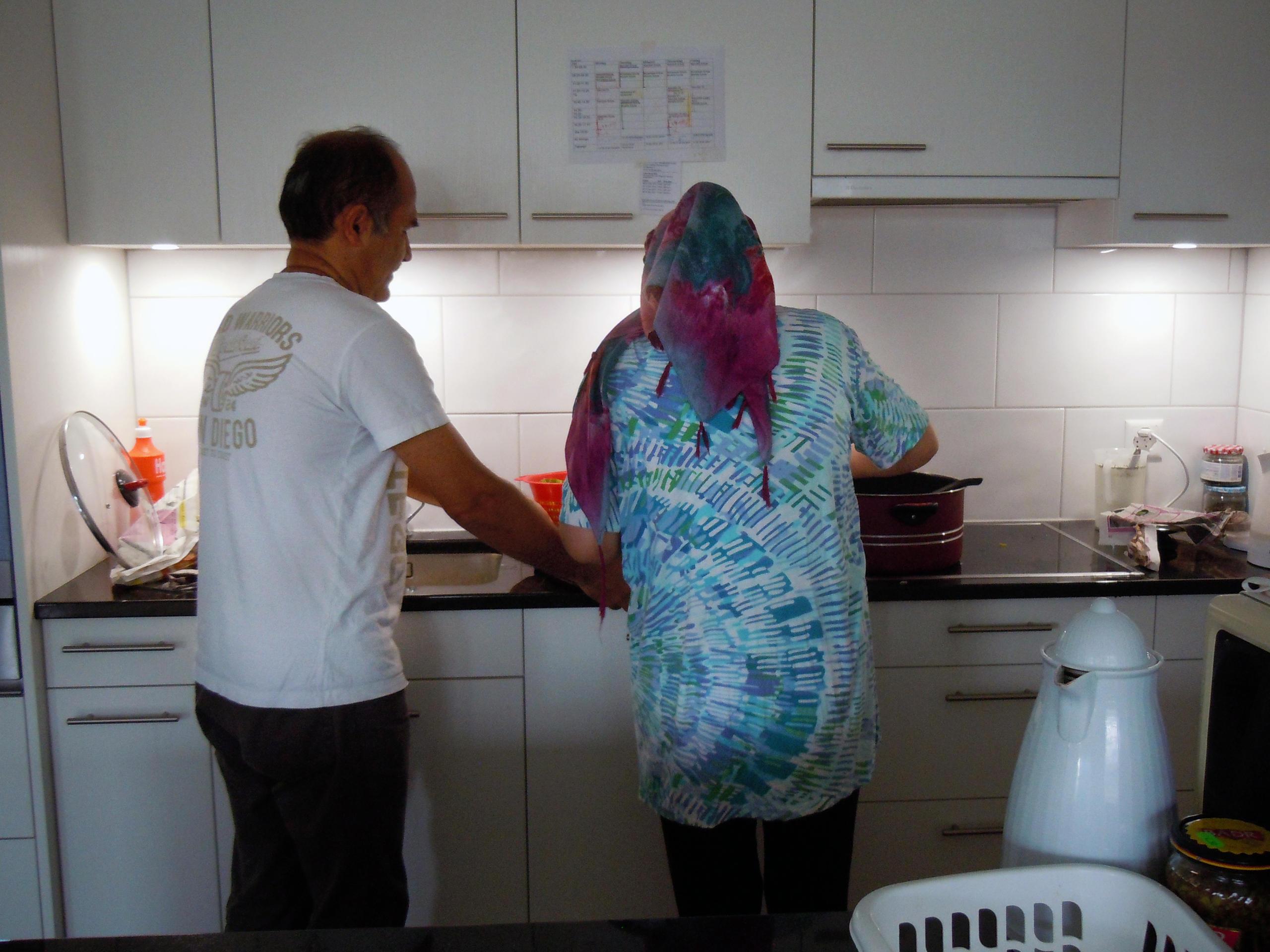
‘What will become of us?’
The Sajadis have got to know the city of Bern quite well, but they haven’t seen much of the rest of Switzerland. They have visited a ski resort and the cities of Solothurn and Zurich. Aside from that, they have been busy with school, daily life, doctors’ visits, gardening, sports, and above all, with learning German. They are all homesick for their country – where war has reigned for more than 35 years – apart from Asma, who was a baby when they left Afghanistan.
The greatest burden is not knowing what the future brings. “This uncertainty, this waiting, is a constant torment which dampens the spirits and sometimes affects my motivation,” Maryam says. And this waiting will continue for a while, because the asylum process hasn’t even started.
*Real names have been changed to protect the family’s identity
Translated from German by Catherine Hickley

In compliance with the JTI standards
More: SWI swissinfo.ch certified by the Journalism Trust Initiative










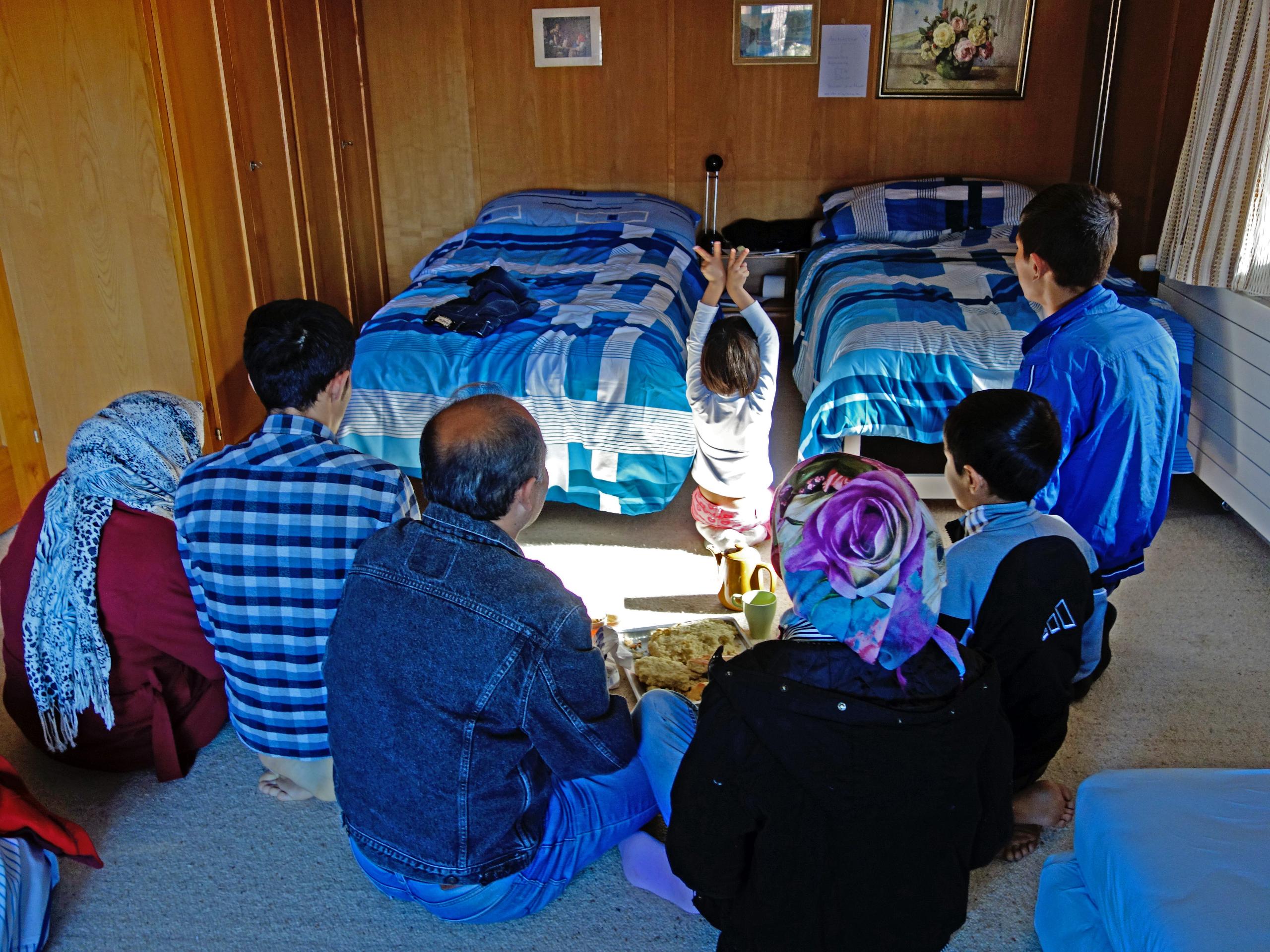


You can find an overview of ongoing debates with our journalists here . Please join us!
If you want to start a conversation about a topic raised in this article or want to report factual errors, email us at english@swissinfo.ch.